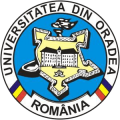The EU’s regional and cohesion policies guarantee intelligent, durable and inclusive growth, by promoting in the same time the EU and its regions’ harmonious development by reducing economic, social, territorial disparities. In the context of the Europe 2020 Strategy and the recent global crisis, the known determining factors of regional development (the quality of the local business environment, the presence and dynamics of clusters, the existing social relations and networking, the quality and competences of the work force, the presence of an innovative and creative class) are enriched with new meanings. At the same time, new factors are identified and catalogued as being „soft” (the efficiency of institutions, technology, innovativeness, enterpreneurship, internationalization, social capital, knowledge infrastructure, culture, demography & migration, quality of place, environment), as their indirect contribution is found in regional progress. For regions located at the borders of the European Union, the specific objective of regional development – the creation of new jobs, the increase of human capital, competitiveness, economic growth, the improvement of life quality and sustainable development – are especially important given the gap that needs to be recovered. Socio-economic and geopolitical relations present in Central and Eastern Europe create a context in which factors and endogenous determiners of regional progress must be carefully identified and instruments of regional policy implementation efficiently used for obtaining outcoms and outputs, which will lead to the strengthening of socio-economic cohesion within the European Union.
Academic objectives: the course aims to familiarize students with certain practical and theoretical aspects of the issues of factors and determiners of regional development. From this point of view, a special attention will be granted to strengths and opportunities, but also to weaknesses and threats existent at the level regions from the EU external border. As a result, our purpose is to build a concrete image of the means and instruments through which progress can be obtained in this particular case.
Learning objectives: The course aims to enrich student competences regarding the identification of resources for local development, the evaluation of the political and economic context for regional development, the identification of challenges and opportunities for regional economy growth, the collaboration with different regional actors, the relation with representatives from the local socio-economic environment, the capitalization of the regional patrimony and cultural potential in sustainable projects, the efficient use of structural and cohesion funds for regional progress, the management of information that is specific to solving complex tasks, the application of efficient work techniques in multidisciplinary teams corresponding to different hierarchical levels, the objective self-evaluation of the need for professional development for inserting in the labour market and adapting to its requirements.
Course and seminar structure:
1. Indicators, factors and determiners in regional development
2. Institutional actors of regional development policy (European Commission, European Parliament, Council of the European Union, Committee of the Regions, European Investment Bank)
3. Cross border and transnational cooperation programs in regional progress
4. Education-research-innovation triangle in regional knowledge based economies
5. Human capital in development of EU border regions
6. Culture – “soft” factor in the EU border regions
8. The evolution of regional and funcțional structures in Central and Eastern Europe
Course support:
Selective bibliography
- Anderson, Malcolm (ed.), Frontier regions in Western Europe, Routledge, 2013
- Bellini, Nicola, Danson, Mike, Halkier, Henrik, Regional Development Agencies: the Next Generation?, Routledge, 2012;
- Blokker, Paulus, Dallago, Bruno, Regional Diversity and Local Development in the New Member States, Palgrave Macmillan, 2009;
- Brie,Mircea, Alina Stoica, Florentina Chirodea, The European Space. Borders and Issues, Debrecen University Press, Debrecen, 2016
- Chirodea, Florentina, ”The role of Universities from the North-Western Romania in the Development of regional Knowledge-based Economies”, ”Annals of the University of Oradea. International Relations and European Studies Series”, no. VII, University of Oradea Press, Oradea, 2015
- Chirodea, Florentina, Szarka, Edit, ”Workforce Competence Improvement by Means of Hungary-Romania Cross-Border Cooperation Programme” in Analele Universităţii din Oradea, Seria RISE, Tom V, 2013, Editura Universității din Oradea;
- Dijkstra, Lewis, Annoni, Paola, Kozovska, Kornelia, “A New European Regional Competitiveness Index: Theory, Methods and Findings”, 2012;
- Etzkowitz, Henry, “Normative Change in Science and the Birth of the Triple Helix”, in James Dziah, Henry Etzkowitz (eds.), The Age of Knowledge: the Dynamics of Universities, Knowledge & Society, Koninklijke Brill N.V., Netherlands, 2012;
- Goddard, John, Vallance Paul, The University and the City, Routledge, 2014;
- Gorzelak, Grzegorz, Bachtler, John, Smetkowski, Maciej, Regional Development in Central and Eastern Europe: Development Processes and Policy Challenges; Routledge, 2010;
- Horvath, Gyula, Spaces and Places in Central and Eastern Europe, Routledge, 2014;
- Huggins, Robert, Izushi, Hiro, Thompson, Piers, “Regional Competitiveness: Theories and Methodologies for Empirical Analysis” in JCC: The Business and Economics Research Journal, Vol. 6, Issues no. 2, 2013;
- Jessop, Bob, Norman Fairclough and Ruth Wodak (eds.), Education and Knowledge – based Economy in Europe, Rotterdam, Sense Publishers, 2008;
- Konsolas, N., Papadaskalopoulos A., Plaskovitis I., Regional Development in Greece, Springer, 2002
- Lithwick, Harvey, Gradus, Yehuda (eds.), Developing frontier cities. Global perspectives – regional contexts, Springer, 2000
- Martin, Ron, Kitson, Michael, Tyler, Peter, “Regional Competitiveness: An Elusive yet Key Concept?” in Martin, Ron, Kitson, Michael, Tyler, Peter (eds.), Regional Competitiveness, Routledge, 2008;
- OECD, Promoting Growth in All Regions, OECD Publishing, 2012;
- Pike, A., Rodriguez Pose, A., Tomaney, J., Local and Regional Development, Routledge, London, 2006
- RausellKöster, Pau, AbeledoSanchis, Raul (coord.), Culture as a Factor of Economic and Social Innovation, Cultural Economics Research Unit of the University of Valencia, Valencia, 2012;
- Stimson, Robert, Stough, Roger R., Nijkamp, Peter, Endogenous Regional Development. Perspectives, measurement, Empirical Investigation, Edward Elgar Publishing, 2011;
- Stimson, Robert, Stough, Roger R., Salazar, Maria, Leadership and Institutions in Regional Endogenous Development, Edward Elgar Publishing, 2009
- Trani, Eugene, Robert Holsworth, The Indispensable University: Higher Education, Economic Development and the Knowledge Economy, Rowman and Littlefield Publishers, 2010;
- Zaman, George, Georgescu, George, Dezvoltarea economică endogenă la nivel regional. Cazul României [Ehttp://ec.europa.eu/eurostat/statistical-atlas/gis/viewer/?mids=2,18,101&o=1,1,0.7¢er=50.01157,19.93633,3&ndogen economic development at the regional level. Romanian case], Expert Publishing House, Bucharest, 2015
Databases:
- Eurostat Regional Statistics by NUTS classification (http://ec.europa.eu/eurostat/web/regions/data/database);
- Eurostat Regional Statistics Illustrated (http://ec.europa.eu/eurostat/web/regions/statistics-illustrated);
- Eurostat Regional Yearbook (http://ec.europa.eu/eurostat/statistics-explained/index.php/Eurostat_regional_yearbook);
- Eurostat Statistical Atlas (http://ec.europa.eu/eurostat/statistical-atlas/gis/viewer/?mids=2,18,101&o=1,1,0.7¢er=50.01157,19.93633,3&)





